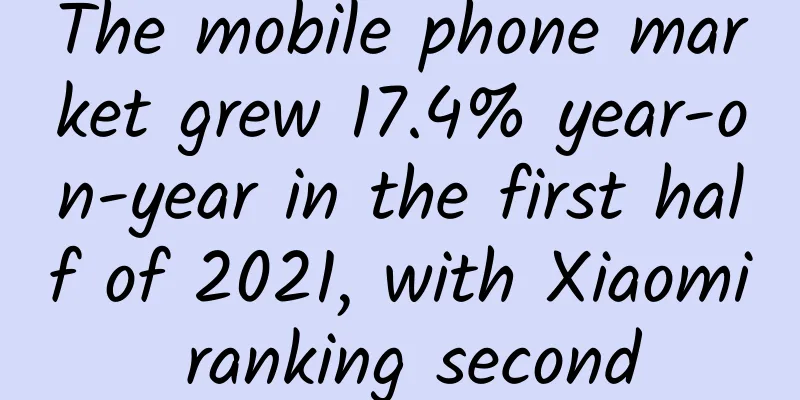How did Internet movies make a comeback?

|
For the 2014 summer movies, the film producers are all internet-based: the subject matter is internet-based, the directors are internet-based, and the marketing is even more internet-based. Internet movies have created one box office myth after another: the movie "See You Tomorrow" directed by Han Han broke 500 million yuan in 11 days after its release, and as of August 5, the box office exceeded 525 million yuan; as of August 4, "Tiny Times 3" directed by Guo Jingming broke 508 million yuan at the box office. "Old Boys Way of the Dragon", distributed by Youku and other websites, still earned 200 million yuan in the box office despite the fierce schedule of "Transformers 4" which earned 2 billion yuan in the front and "Tiny Times 3" and "See You Tomorrow" in the back. Compared with "See You Tomorrow" and "Tiny Times 3", "Old Boys Way of the Dragon" has a stronger Internet gene: the actors, director, and screenwriter all grew up on the Internet. Internet movies were once full of Diaosi colors: between 2006 and 2008, content represented by weird and ugly things met a certain need at the time and provided young people with a channel to relieve the pressure of daily life; after 2009, some high-quality content and production teams emerged, and in addition to weird and ugly things, there was also a careful examination and rational thinking of this era. Wei Ming, president of Youku, said in an interview with 21st Century Business Herald that the evolution of Internet video content has evolved from UGC (user-generated content), PGC (professional small organizations producing content), to big movies. The three are not mutually exclusive, but influence each other, coexist and prosper together, forming the "three-stage rocket" of future Internet video. "His Country" Carnival Han Han and Guo Jingming first rose to fame on the Internet. They were not well received by traditional mainstream writers, but their works were distributed and their fame was gathered through the Internet. They became Weibo celebrities with countless fans. From novels, essays, to movies, they completed one gorgeous turn after another, which drove their fans crazy and amazed the onlookers. Wei Ming said: Fans come first, then products, this is a typical feature of the Internet era. Whether it is Han Han, Guo Jingming, or Chopstick Brothers, they use micro-films, novels, essays, and even 140-character microblogs to use social networks to cultivate their reputation and develop their own fans. In the past few years, Han Han, Guo Jingming, and Chopstick Brothers have all been absolute stars in a certain "Internet community." Among these ethnic groups, their influence is unparalleled. This is "his country", and the title of Han Han's book is an extremely appropriate analogy. Having fans is the first step. To create products based on fans, you must interact with fans throughout the process and form a carnival for the entire group in "his country". Taking Han Han's "See You Tomorrow" as an example, on June 19, July 10, July 16, and July 28, 2014, Han Han released the movie interlude "Song of Dongji Island", the theme song ("See You Tomorrow" sung by Deng Ziqi), the movie promotional song ("Ordinary Road" sung by Pu Shu), and a series of on-set stories "See You Tomorrow·Zhang Xiaomao's On-set Diary" through Weibo. Every time a post is published on Weibo, it attracts numerous likes, comments and comments, and creates countless topics. For example, Pu Shu's "Ordinary Road" coincides with the announcement of his ex-girlfriend Zhou Xun's marriage. The new marriage and old love, fifteen years of worldly troubles, can't help but stir everyone's nerves. Gao Xiaosong left a message on Weibo: "I remember the summer 15 years ago when we were young and filmed movies in the big city and on the distant seashore. Filmed about love and waiting, vows and time. Now that life has come to light, it's great." Another wave of madness, everyone's phone couldn't help but be flooded with messages. Having been friends with fans for many years, Han Han and his planning team know very well how to plan a "national carnival" in "his country". This is "not a victory for the common people (ordinary netizens)", and Han Han's "No Regrets" is the beneficiary of these communication events. Similar to "Old Boys: Way of the Dragon", the film company held a "China Old Boys 30-city Tour Large-scale Online Reality Show" solicitation activity through the Internet. The selected "China Old Boys" will tour in 30 cities with the "Chopstick Brothers" and other main creators. Among them, the lucky "Old Boys" will also be expected to embark on a carnival tour in the United States with the "Chopstick Brothers". On May 29, the MV of "Little Apple", the promotional song of "Old Boys Go Dragon", was officially released online. The MV was filmed and produced entirely in South Korea, and the choreographer was Lee Joo-sun, the creator of the "Horse Riding Dance" in Psy's "Gangnam Style" and winner of the Korean Gaon Music Awards' Annual Style Dance Award. Lee Joo-sun and his Korean team worked hard to create the signature dance of "Little Apple", and the song quickly became a new generation of hit song. The Loser's Counterattack Why can the Diaosi counterattack? First of all, the Diaosi here usually refers to individuals or small and micro organizations, who have the ability to face users in the Internet era. Traditional products need to go through national agents, regional agents, and terminal stores to form a channel to reach users; they need to be informed of users through media such as television, newspapers, and radio stations. This is a problem that cannot be solved by individuals or small and micro organizations. It requires strong human, financial, and resource integration capabilities, which can only be solved by large organizations. Wei Ming said that everything has changed in the Internet era. Taking video content as an example, the distribution channels include video platforms such as Youku and Tudou, as well as social platforms such as WeChat Moments and Weibo. They have become new channels to reach users; marketing and channels are seamlessly integrated, allowing users to participate in every major marketing event throughout the entire process. Although achieving zero cost is still just a fantasy, the cost is already unimaginably low compared to the traditional era. How did all this happen? Wei Ming believes that there are many ways to describe Internet thinking, but in the final analysis, it is symmetrical thinking: the essential change brought about by the Internet is to solve the "symmetry" problem, that is, information symmetry, power symmetry, and resource symmetry. Individuals and small and micro organizations have unprecedented rich information, resources, and power. In the Internet era, production resources have also begun to become symmetrical: under the traditional model, the cost of producing a video requires an investment of millions, tens of millions, or even hundreds of millions. In the Internet era, a mobile phone or a DV is a production workshop, and everyone can have their own production workshop. The symmetry of channel resources, marketing resources, and production resources created the early carnival of Internet videos, that is, the abundance and emergence of UGC and PGC content. But this did not solve the problem of how to produce big movies. Big movies require big platforms and big institutions to integrate resources. But they have created such a possibility: as long as you focus on making products, make them perfect, and have your own reputation, resources will find you. Wei Ming said that a typical example is Chopstick Brothers: five years ago, they were unknown; later, they gradually gained reputation with works such as "Old Boy" and "Father", and large institutions and capital saw the imagination space and began to accumulate. Five years ago, many people who made funny faces had more fans than Chopstick Brothers, but now they have disappeared without a trace. As a winner of Toutiao's Qingyun Plan and Baijiahao's Bai+ Plan, the 2019 Baidu Digital Author of the Year, the Baijiahao's Most Popular Author in the Technology Field, the 2019 Sogou Technology and Culture Author, and the 2021 Baijiahao Quarterly Influential Creator, he has won many awards, including the 2013 Sohu Best Industry Media Person, the 2015 China New Media Entrepreneurship Competition Beijing Third Place, the 2015 Guangmang Experience Award, the 2015 China New Media Entrepreneurship Competition Finals Third Place, and the 2018 Baidu Dynamic Annual Powerful Celebrity. |
Recommend
With the help of "direct imaging", exoplanets can be "believed"
Produced by: Science Popularization China Author:...
Are 400 numbers useful? What are the functions of 400 numbers?
There are two main ways for enterprises to handle...
10 ways for new users to increase their followers on Bilibili, how to increase your followers quickly
With the rapid development of Bilibili, both ente...
IMF Finance and Development: Artificial intelligence brings hope to the global economy
If used properly, AI could significantly accelera...
Apple has gone too far: iOS forces you to use Apple Pay
If you are an iPhone user, you may have discovere...
MTC acquires Fengxing Online, and the transformation to the Internet becomes a trend
On August 13, Shenzhen MTC announced that it plan...
Luxury cars priced over 1.3 million will be subject to a 10% consumption tax
Recently, the Ministry of Finance and the State A...
It's your car, but not entirely. What are the methods used by manufacturers to remotely lock it? This article will help you avoid pitfalls
The car you buy is not your car, or in other word...
Will the surge in international oil prices hit the Chinese auto market hard?
When filling up a tank of gas costs more than 20 ...
Tianzhou 6 launched! How was the "courier brother" of China's space program trained?
Produced by: Science Popularization China Author:...
My WeChat circle has reached 50 points, why is it not displayed in "Editor's Favorite"?
Question: My WeChat circle has reached 50 points,...
Five years of practical operation experience, revealing seven golden rules of user operation!
Preface: User operation is the most important par...
What is the difference between programmatic and custom creatives in Toutiao’s information flow?
With the launch of information flow, many friends...
Analysis of Perfect Diary’s private domain traffic operations!
This article explains why Perfect Diary’s private...
Three-level strategy for attracting new customers at low cost in the education industry
In this era when traffic is becoming more and mor...









